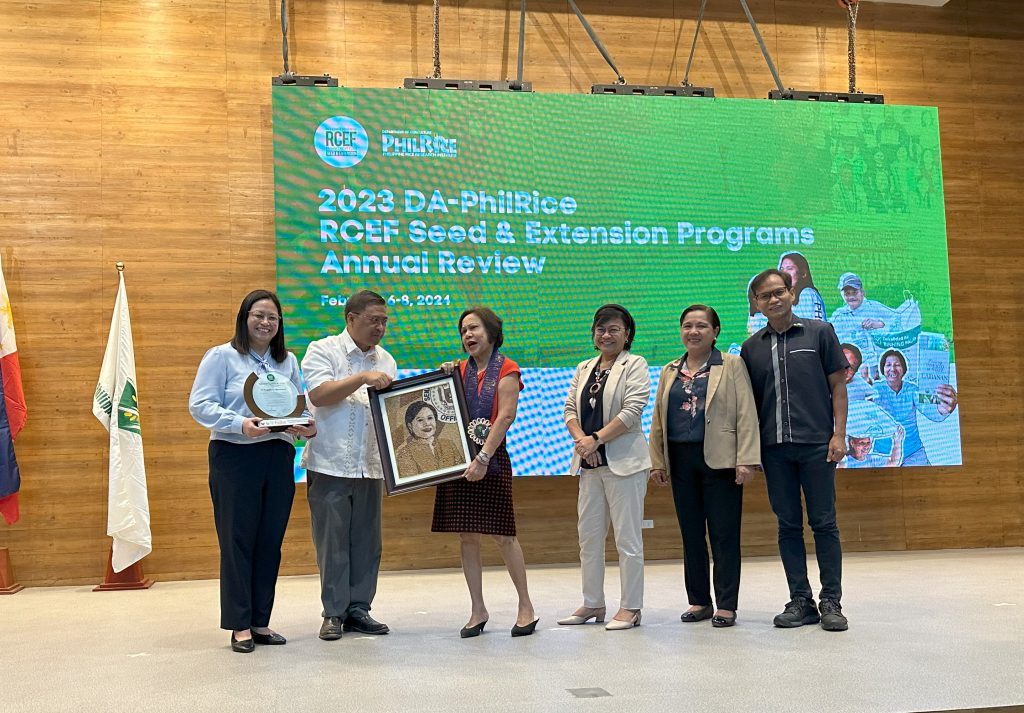
Sen. Cynthia Villar, chairperson of the Senate Committee on Agriculture, commended PhilRice as she graced the 2023 RCEF Seed and Extension Programs Annual Review on Feb. 6-8, in Nueva Ecija. She strongly supports an extension of the Rice Competitiveness Enhancement Fund (RCEF) to continue providing crucial support to local farmers.
Villar emphasized the need for sustained efforts to increase rice output per hectare and reduce production costs under the Rice Tariffication Law (RTL). She highlighted the positive impact of the RTL since its inception in 2019 with consistent growth in average production per hectare—from 4.05 in 2019 to 4.15 metric tons in 2021.
“I am sponsoring the Rice Tariffication Law extension bill, and I look forward to PhilRice’s support on this,” Villar declared in front of agriculture stakeholders, stressing the importance of maintaining the momentum achieved through the RCEF.
As the five-year implementation of the RCEF programs concludes this year, Villar announced her intention to have them extended. She underscored the necessity of reviewing and recognizing the programs’ impact on agri-productivity, to justify their continuation.
Dr. Flordeliza Bordey, director of the PhilRice RCEF Program Management Office, reported that seed recipients increased their average yield as shown in the midterm and seasonal monitoring and evaluation surveys conducted in the 42 original target provinces of the RCEF Seed Program.
In the dry season 2023, their average yield increased from 3.63t/ha in 2019 to 4.36t/ha while the use of the recommended packages of technology in PalaySikatan demonstration sites reached an average of 5.22t/ha.
The program has distributed 16.04 million 20-kilogram bags of inbred rice seeds to 2.4 million unique beneficiaries who received in multiple cropping seasons. The component achieved a 93 percent accomplishment rate out of its target of 17.22 million bags. The distributed inbred rice seeds have been planted to 1.8 million hectares of land annually since 2019.
Meanwhile, Dr. Karen Eloisa T. Barroga, RCEF-Rice Extension Services Program vice-chairperson, said that the training of rice specialist and trainers has significantly enhanced the participants knowledge and skills on rice S&T, boosted their confidence in technology dissemination specifically focusing on pest and nutrient management technologies, and empowered them to actively engage in conducting training activities.
She also reported that each region now has 25-48 rice experts who will help farmers diagnose field problems while more than 4,300 graduates of training of trainers nationwide now teach farmers and set up varietal trials in more than 300 farm schools. More than 4,000 farmers have undergone season-long training on rice production using and on pest and nutrient management both using the PalayCheck learning platform.
The seed distribution activities and training courses were also complemented with more than 5 million copies of IEC materials that were produced and distributed nationwide and with various formats of knowledge sharing and learning activities reaching at least 18 million rice farmers, intermediaries, and other stakeholders.




